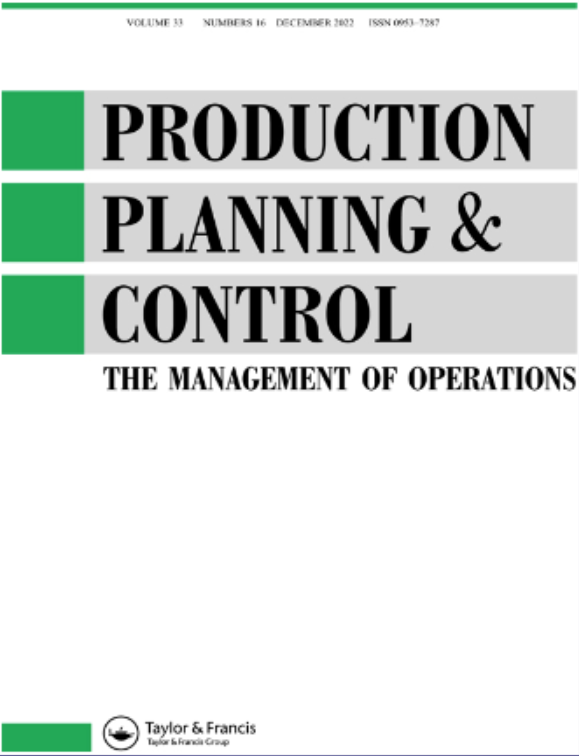Relationships between competences and lean automation practices: an exploratory study
IF 5.4
3区 管理学
Q1 ENGINEERING, INDUSTRIAL
引用次数: 8
Abstract
Abstract Lean Automation (LA) is defined as the combined use of Lean Production (LP) practices and Industry 4.0 (I4.0) technologies. This paper investigates the pairwise relationships between the LA practices and their corresponding implementation competences. A survey-based study with 110 practitioners from manufacturing companies was conducted. Multivariate data techniques were used to analyze the responses, which were categorized according to practitioners’ LP experience and I4.0 knowledge. Findings indicate that the relationships between competences and LA practices become more prominent as practitioners’ LP experience increases. A contrary trend was observed when I4.0 knowledge increases. Nevertheless, commonalities were found regardless respondents’ characteristics, such as: (i) the significant relationships between LA practices and competences were all positive; (ii) supply chain-related LA practices are more likely to be extensively associated with all competences; and (iii) competences related to the ability of identifying, analyzing and solving problems through computer programming and data analytics were the most likely to support LA practices. To the best of our knowledge, this is the first study that empirically verifies the pairwise relationship between competences and LA practices. The understanding of this allows companies to foster and develop the proper competences on the employees, catalyzing the LA implementation.能力与精益自动化实践之间的关系:一项探索性研究
摘要精益自动化(LA)被定义为精益生产(LP)实践和工业4.0 (I4.0)技术的结合使用。本文研究了LA实践与其相应的执行能力之间的两两关系。对110名来自制造企业的从业人员进行了调查研究。根据从业者的LP经验和I4.0知识,采用多变量数据技术对响应进行分析。研究结果表明,随着从业人员LP经验的增加,能力与LA实践之间的关系变得更加突出。当工业4.0知识增加时,观察到相反的趋势。然而,无论受访者的特征如何,都发现了共性,例如:(i) LA实践与能力之间的显著关系都是正的;(ii)与供应链相关的物流实践更有可能与所有职能广泛相关;(iii)通过计算机编程和数据分析识别、分析和解决问题的能力是最有可能支持LA实践的能力。据我们所知,这是第一个从经验上验证能力和LA实践之间两两关系的研究。对这一点的理解使公司能够培养和发展员工的适当能力,促进LA的实施。
本文章由计算机程序翻译,如有差异,请以英文原文为准。
求助全文
约1分钟内获得全文
求助全文
来源期刊

Production Planning & Control
管理科学-工程:工业
CiteScore
19.30
自引率
9.60%
发文量
72
审稿时长
6-12 weeks
期刊介绍:
Production Planning & Control is an international journal that focuses on research papers concerning operations management across industries. It emphasizes research originating from industrial needs that can provide guidance to managers and future researchers. Papers accepted by "Production Planning & Control" should address emerging industrial needs, clearly outlining the nature of the industrial problem. Any suitable research methods may be employed, and each paper should justify the method used. Case studies illustrating international significance are encouraged. Authors are encouraged to relate their work to existing knowledge in the field, particularly regarding its implications for management practice and future research agendas.
 求助内容:
求助内容: 应助结果提醒方式:
应助结果提醒方式:


